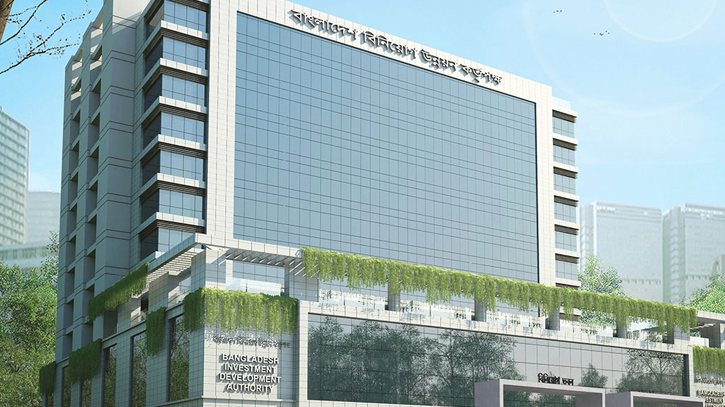
Photo : Collected
The government has at long last decided to go tough on foreigners from different countries working illegally in Bangladesh. It has been found that a substantial number of foreign nationals are currently employed in this country, with many lacking proper work permits.
This situation has led to a significant outflow of money from the country, as well as depriving the government of much-needed revenue due to tax evasion. In response, the government is poised to implement stringent measures to address this issue and ensure compliance with regulations.
A crucial meeting was convened recently by the Bangladesh Investment Development Authority (BIDA) to address the issue of foreign workers or citizens residing in Bangladesh without proper work permits.
Chaired by Principal Secretary to the Prime Minister, Tofazzal Hossain Mia, the meeting saw the presentation of various recommendations and opinions aimed at formulating effective strategies to tackle this pressing concern.
Concerns have been raised regarding the exacerbation of the existing employment crisis in the country due to the influx of illegal foreign workers engaging in various activities. This situation has led to a narrowing of job opportunities for locals. In response, the government has initiated efforts to address this issue.
To begin with, a comprehensive assessment has been conducted to determine the number of foreigners residing in the country until December 31, 2023. The data indicates that there are 107,167 foreigners currently staying in Bangladesh, with a significant portion being citizens of India and China. This information serves as a crucial starting point for the government's efforts to address the challenges posed by illegal foreign workers and safeguard the interests of local job seekers.
BIDA Executive Chairman Lokman Hossain Miah said, “Since foreigners are working without work permit, their earned money is going out through Hundi. This is gradually affecting our economy. For the development of the country, foreign citizens must work in Bangladesh in accordance with the rules.”
According to the law, it is mandatory to pay income tax and obtain a work permit if you stay and work in Bangladesh. Although many foreigners work in various projects on A-3 visa, who do not take work permits because there is no condition for accepting work permits in the visa policy of 2006. It makes it easy for them to evade income tax.
It appears that individuals staying in Bangladesh without a valid work permit or with an expired visa can opt to leave the country by paying a fine of only Tk 30,000, irrespective of the duration of their stay. This lenient penalty has led to a situation where individuals may choose not to seek permission, as the fine is significantly lower than the taxes they would be liable to pay otherwise. This highlights a concerning loophole in the system that may encourage non-compliance with immigration regulations.
The lack of information exchange between relevant ministries, departments, offices, or organisations has inadvertently provided foreigners without work permits the opportunity to prolong their stay in Bangladesh. This gap in communication allows individuals to leave the country with their old passport, acquire a new one from the embassy of their respective country in
Dhaka, and potentially return to Bangladesh without facing repercussions for their previous illegal stay. This loophole underscores the need for improved coordination and collaboration among government entities to effectively manage immigration and enforce regulations.
The issue of blacklisted foreigners entering Bangladesh with fresh visas using new passports further exacerbates the challenges surrounding immigration control. The ability for individuals to change their visa category while staying in the country illegally is cited as one of the reasons for their prolonged unauthorised presence.
Principal Secretary to the Prime Minister Tofazzal Hossain Mia highlighted that many foreign nationals are working in Bangladesh under A-3, B, or tourist visas, evading income tax obligations.
Moreover, some individuals switch employers without obtaining the required work permits. Due to loopholes in the visa policy established in 2006, which lacks a provision mandating work permits, many foreigners leave the country without proper authorisation or continue working even after their visa expires, paying a nominal fine of only 30 thousand taka. To address this issue, the government has decided to implement a daily and progressive penalty system to deter such violations.
He further said, “According to the report of the Special Branch and Security Services Department of the Police, the number of legal foreign nationals staying in Bangladesh till December 31, 2023 is 1,07,167. Out of this, 10,485 on business and investment visas, 14,399 on employee visas, 6,827 on study visa and 75,456 on tourist visa. Indian nationals accounted for the most at 37,464 and Chinese nationals came second with 11,404.
According to BIDA sources, the illegal stay of foreigners is leading to a reduction in employment opportunities for local workers. These foreigners are working without proper work permits, receiving their salaries and allowances in cash, and illegally transferring money abroad through hundi channels. Additionally, foreigners staying in Bangladesh on expired visas are reportedly engaging in various criminal activities.
To address these crises, BIDA has recommended the establishment of a central online inter-operable repository. This repository would facilitate immediate access to information, allowing authorities to effectively monitor and manage the presence of foreigners in the country and take necessary actions to mitigate the associated risks and challenges.
According to the organisation, this database will be accessible to Department of Security Services, Ministry of External Affairs, Bangladesh Bank, National Board of Revenue, BIDA, BEPZA, BEZA, Hi-Tech Park Authority, NGO Affairs Bureau, NSI, Directorate of Immigration and Passport and Special Branch. Besides, the process of issuing visas to Bangladeshi missions will be made online and automated by inter-operating with all the concerned agencies.
Messenger/Disha








